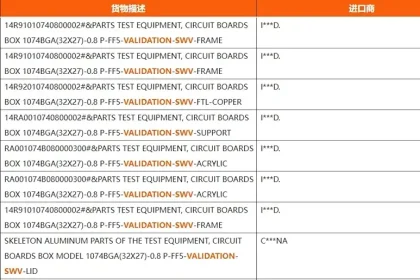This article was contributed by Damilola Adelekan, lead product manager at Remedial Health Solutions.
Last year, at a small pharmacy in Lagos, I watched the owner scramble to communicate with multiple WhatsApp messages from suppliers while scanning his shelves for medicines past their expiry dates. In that moment, my decision to work in health tech couldn’t be any clearer: inefficient and risky pharmaceutical supply chains and poor inventory management either as a result of understaffing or nonchalance, could benefit from technology solutions.
So far, it has. Several startups have launched in the past few years to aid in inventory management for pharmacies across the continent. But, tech alone won’t fix faulty pharmaceutical supply chains.
Easing bottlenecks
In Africa’s $26.85 billion pharmaceutical market, problems of fragmentation, counterfeits, and last-mile delivery persist. The conventional approach to drug distribution, with its numerous intermediaries and muddled-up supply chain, remains insufficient to meet increasing healthcare needs on the continent.
Nevertheless, the emergence of various health tech solutions is painting a new picture.
In Nigeria, companies like DrugStoc, LifeStore, and Remedial Health Solutions, where I am currently the lead product manager, are revolutionising pharmaceutical procurement. These are not just ordering apps; they are creating an entire supply chain of manufacturers and healthcare providers. I have talked to dozens of pharmacy owners who say they have cut their stockouts by 40% and their costs by a quarter using these platforms.
I am in awe of the work being done in East Africa by Maisha Meds and MEDS (Mission for Essential Drugs and Supplies). In Kenya, Uganda, and Tanzania, Maisha Meds has established a strong network of over 1,000 pharmacies. They have assisted small pharmacies in digitising their inventory management and verifying the legitimacy of drugs using mobile phones. The outcome? A near complete elimination of fake medications in their networks and a 30% improvement in operational efficiency.
Startups like RxAll and Sproxil are also adding transparency to pharmaceutical supply chains using simple technology. With one code scan, pharmacy owners are now able to track a drug’s path from manufacturer to shelf. This is revolutionary. This transparency isn’t just about safety—it’s rebuilding confidence in the pharmaceutical market.
I can’t count how many times pharmacy owners have told me, “I know the medications I need in my store, but I don’t have the money to keep them in stock.” That’s why I am excited about businesses like Field Intelligence and Remedial Health Solutions which offer both inventory management and financing options. They are enabling small pharmacies to increase their stock and do so without incurring significant financial risk or breaking the bank.
Regarding delivery, several companies are now developing conventional hub-and-spoke distribution models, a contrast with Zipline’s drones in Rwanda and Ghana. These models involve large central warehouses joined to small local fulfilment points. They may not be as glamorous as drones, but they do assist in getting medicines to remote areas.
The road ahead
I must be realistic about the sector’s lingering problems. Regulation has not kept up with technology, and there are still the issues of internet connectivity and erratic power supply. What annoys me most is that so many businesses are creating digital islands that cannot communicate with each other.
Here is what I believe needs to happen:
First of all, interoperability should become the norm—it’s time to take down those silos. I am so tired of seeing different platforms springing up that are not able to talk to each other. Industry-wide standards for data sharing and integration are needed to allow different platforms work together without eliminating competitive differentiation.
Second, we have to support local manufacturing. COVID-19 revealed that we have been over-dependent on imported medicines. There are pharmaceutical factories in Nigeria and Ghana that could be supplying more of the medicine that Africa needs if they were better connected to distribution networks. Companies can focus on facilitating the connection between local manufacturers, distributors, and healthcare providers.
Third–and I feel strongly about this–African governments need to harmonize their regulations. I’ve seen too many new ideas fail because they have to deal with different policies in each country. The African Continental Free Trade Area (AfCFTA) provides an opportunity to standardize pharmaceutical regulations across borders.
Fourth, we desperately need better infrastructure, and this is not just physical ones. The best technology in the world won’t help if we don’t have reliable internet and power.
Finally, we need sustainable business models. I’ve seen too many donor-funded projects fail once the funding dries up. This means developing business models that can work despite the existing constraints in our markets.
The next five years will be transformative for Africa’s health tech sector. We’ll likely see some consolidation as companies seek scale advantages. We’ll see more integration with traditional healthcare systems. And I’m betting we’ll see the rise of truly pan-African platforms. Winners will be those mixing innovation with practicality, profitability, and social impact.
We aren’t turning current processes digital, but rethinking the way medical supplies travel through African health systems. I can tell from my vantage spot in the industry that we’re headed in the right direction. The technology exists. The entrepreneurial talent is here. The market opportunity is clear. Now, we’ve got to dream bigger, shift focus from standalone fixes to creating frameworks that serve all people well.
This isn’t just business for me – it’s personal. Every time I visit a rural clinic or small pharmacy that has picked up our latest tech, I can spot the change we’re bringing about. Yet, there’s a ton left to tackle. It’s not just one firm or gadget that will revolutionize health tech in Africa–it’s about all of us working together to ensure every African has access to the medicines they need.
____________________
Damilola Adelekan is a results-driven Product Manager with over 5 years of experience in physical wellness, dot-coms, and SaaS platforms. She specialises in product development, roadmap planning, and leveraging user feedback to deliver impactful solutions. As Lead Product Manager at Remedial Health Solutions, she combines strategic thinking with a customer-first approach to drive revenue and product success.










